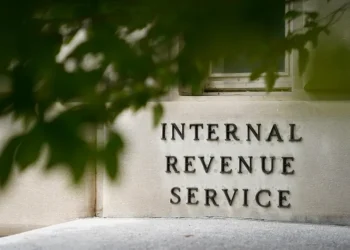Hegseth Bypassed Pentagon Security to Use Signal App on Personal Computer, Sources Say
WASHINGTON — Defense Secretary Pete Hegseth is under scrutiny after revelations that he had an unsecured internet connection installed in his Pentagon office to use the encrypted messaging app Signal on his personal computer, according to two sources familiar with the setup.
This “dirty” internet line — industry slang for a direct connection to the public web with no Pentagon-level security filters — raises serious concerns about potential exposure to hacking, surveillance, and lapses in federal recordkeeping standards.
While such lines have been used elsewhere in the Pentagon for specific monitoring purposes, their vulnerability to foreign surveillance and lack of audit trails make them highly controversial — especially when used by someone in Hegseth’s position.
The discovery adds to a growing storm around Hegseth’s use of Signal, an app not approved for sharing sensitive or classified government information. The controversy began after he shared details of a U.S. military airstrike in two Signal group chats, one including senior national security officials and the other featuring family members — including his wife and brother.
Some of the information he posted, such as launch and bomb drop times, was drawn from a secure military communications channel and would typically be considered classified, according to multiple current and former defense officials. It was reportedly shared before the operation had been completed — a move critics say could have endangered service members.
When asked about Hegseth’s use of Signal, Pentagon spokesperson Sean Parnell said the secretary’s communications are classified. He did confirm, however, that Hegseth “has never used and does not currently use Signal on his government computer.”
Nonetheless, sources told the Associated Press that Hegseth had three computers in his office: one personal, one for classified work, and one for other sensitive defense communications. To facilitate personal Signal use, he initially accessed Wi-Fi in a back area of his office but later requested a direct internet line to his desk.
This setup bypassed standard Pentagon cybersecurity measures designed to protect against espionage.
In the wake of the Signal scandal, Hegseth has tightened his inner circle, reportedly firing or transferring several close advisers. The shake-up follows a string of dismissals of senior military officials, creating a sense of instability within the Defense Department.
Despite bipartisan concerns from lawmakers, Hegseth continues to enjoy the full backing of the Trump administration.
“It’s just fake news. They just bring up stories,” Trump said this week, blaming leaks on disgruntled employees. Vice President JD Vance echoed this support, telling reporters, “I have 100% confidence in the secretary. I know the president does and, really, the entire team does.”
It’s worth noting that Hegseth had access to several secure communication systems already in place at the Pentagon:
- NIPRNet – Handles unclassified but sensitive information with some internet access and firewalls.
- SIPRNet – Used for secret-level communications.
- JWICS – Reserved for top-secret and compartmentalized intelligence.
Despite these options, Hegseth chose to rely on a personal device and a public internet line to use Signal, a move cybersecurity experts warn is far from safe — even for encrypted apps.
Theresa Payton, a former White House CIO under President George W. Bush and current CEO of Fortalice Solutions, said that while Signal offers more security than regular texting, it is far from foolproof. “Encryption only works if the device and connection are secure,” she warned.
The National Security Agency has also cautioned that foreign hackers, particularly from Russia and China, have targeted officials using Signal. Google recently issued a similar warning about Russia-aligned cyber threats.
Now, the Defense Department’s acting inspector general is investigating Hegseth’s use of Signal, following a request from bipartisan leaders on the Senate Armed Services Committee.
Hegseth has denied leaking classified “war plans” and maintains he did nothing wrong. But experts say the details he shared — especially before the mission concluded — meet the threshold of classified material and could have had dangerous consequences.
This article was rewritten by JournosNews.com based on verified reporting from trusted sources. The content has been independently reviewed, fact-checked, and edited for accuracy, neutrality, tone, and global readability in accordance with Google News and AdSense standards.
All opinions, quotes, or statements from contributors, experts, or sourced organizations do not necessarily reflect the views of JournosNews.com. JournosNews.com maintains full editorial independence from any external funders, sponsors, or organizations.
Stay informed with JournosNews.com — your trusted source for verified global reporting and in-depth analysis. Follow us on Google News, BlueSky, and X for real-time updates.













